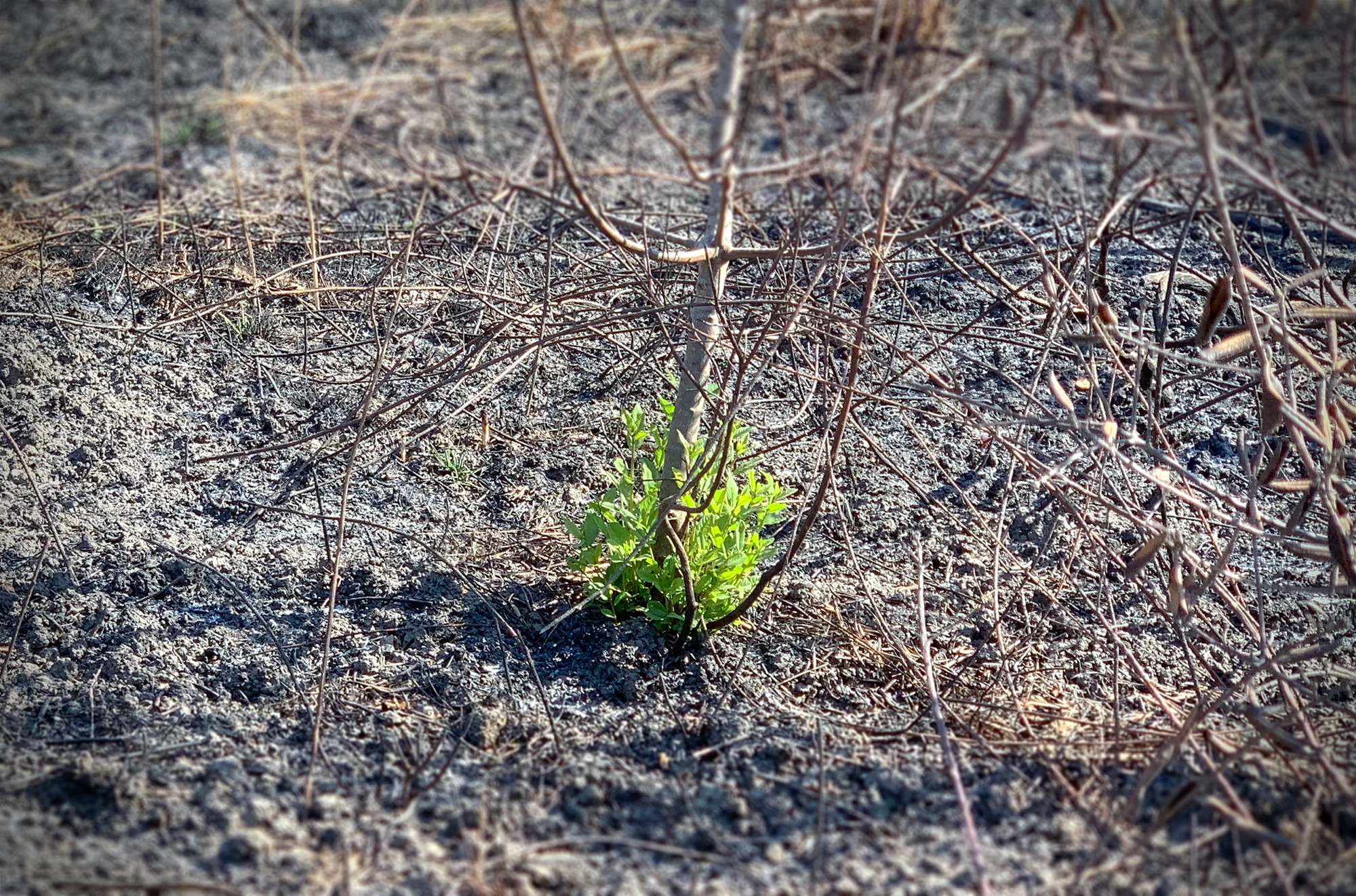Rising from the ashes – Growth After Hardship – A Word To Our Readers

By: Wendy Millet
 In the field of Positive Psychology, there is an important distinction between stress that is degenerative (distress) and stress that is regenerative (eustress). Understanding different types of stress is valuable not only for understanding the wellbeing of humans; this distinction is extremely valuable for land stewardship as well. Healthy natural systems flow in a continuous and regenerative cycle of disturbance and recovery; caring for ecosystems depends upon recognizing and emulating these cycles. To an untrained eye, the stress and strain of an athlete during an intense workout might seem like cause for alarm. In much the same way, the initial dramatic impact from high-intensity grazing or a prescribed burn can prompt some to think that these practices are degenerative for the health of the land. However, for the land, as for our own bodies, stress (non-chronic and temporary) can help us adapt and grow stronger.
In the field of Positive Psychology, there is an important distinction between stress that is degenerative (distress) and stress that is regenerative (eustress). Understanding different types of stress is valuable not only for understanding the wellbeing of humans; this distinction is extremely valuable for land stewardship as well. Healthy natural systems flow in a continuous and regenerative cycle of disturbance and recovery; caring for ecosystems depends upon recognizing and emulating these cycles. To an untrained eye, the stress and strain of an athlete during an intense workout might seem like cause for alarm. In much the same way, the initial dramatic impact from high-intensity grazing or a prescribed burn can prompt some to think that these practices are degenerative for the health of the land. However, for the land, as for our own bodies, stress (non-chronic and temporary) can help us adapt and grow stronger.
Currently, a global pandemic, widespread social disharmony, and catastrophic wildfires and floods are putting immense stress on our social, political, economic, and agricultural systems. While we cannot always control the intensity or duration of these stresses, we can look for ways to learn from challenging times so we might emerge stronger and more equipped than we were before. In that spirit, in this month’s newsletter, we highlight some of the resources that have given our team hope for the future of our food system during these difficult and uncertain times.
- We’d like to re-highlight a long and growing list of inspirational organizations that are working to bring social justice to our food system. Social justice is a critical part of a truly regenerative food system, and it is wonderful to see much energy being brought to this crucial endeavor.
- Since publishing our statement on the fires around TomKat Ranch, our list of fire prevention and recovery resources has grown to include new content including amazing webinars hosted by the Resource Conservation Districts (RCDs) and the Natural Resources Conservation Service (NRCS).
- This month, Netflix premiered the excellent documentary, Kiss the Ground, a powerful and provocative look at the importance of creating a regenerative food system for all.
- This interactive map of regenerative agricultural projects across the globe shows a growing number of people and organizations devoting themselves to being part of a regenerative food system.
- Last, we hope you enjoy this series of articles exploring barriers and solutions to scaling the adoption of regenerative agriculture published by the Regenerative Agriculture Initiative at the Yale Center for Business and the Environment. The articles draw on interviews with farmers, investors, nonprofits, regulators, and food companies and are a great resource for inspiring and educating decision-makers to support and invest in regenerative agricultural models.